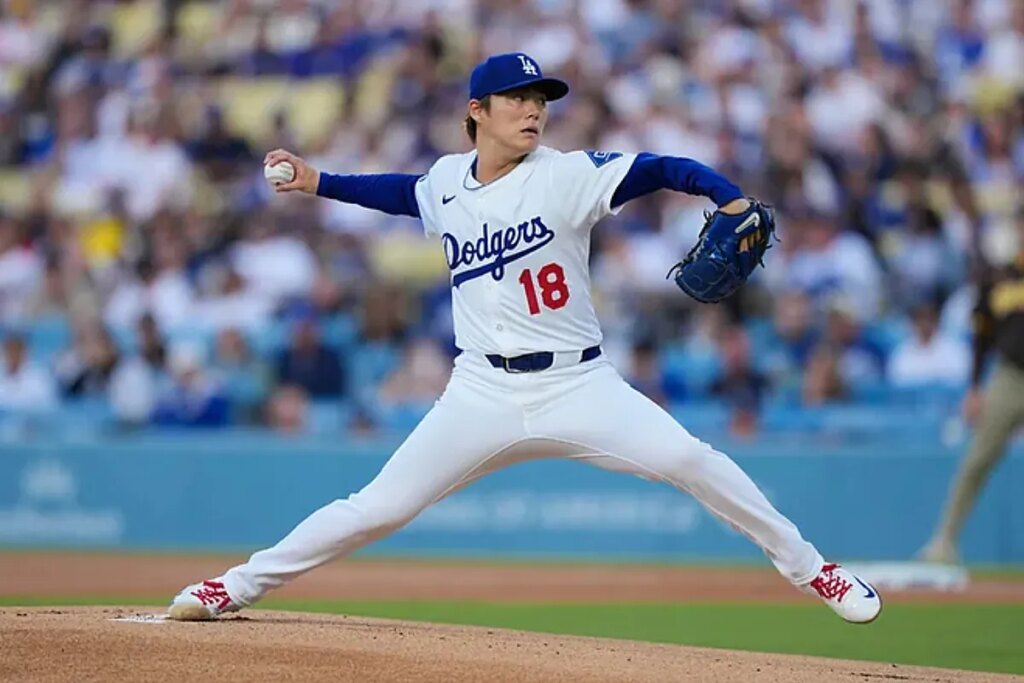Thursday night could have been historic at Dodger Stadium, but a home plate umpire’s error deprived Yoshinobu Yamamoto of an immaculate inning, one of the rarest acts in baseball. The Japanese pitcher was one strike away from perfection in the third inning against the San Diego Padres, but a controversial call by umpire Marvin Hudson changed the course of events.
With two outs and an 0-2 count against Fernando Tatis Jr., Yamamoto threw a fastball that crossed the center of the plate and, for most, was an undisputed called strike. However, Hudson considered it a ball. Although the Dodgers right-hander ended up striking out Tatis with a cutter afterwards, the possibility of signing his first immaculate inning in MLB vanished by a questionable umpiring decision.
An extremely rare achievement thwarted by questionable officiating
An immaculate inning, that is, three batters retired via strikeout with only nine pitches, is rarer than a no-hitter. So far, only 118 have been recorded in Major League Baseball history, while no-hitters exceed 320. So far in 2025, only Cal Quantrill has achieved one, on May 18 with the Marlins.
That’s why what seemed like a special night for Yamamoto ended in frustration. The Japanese had retired Bryce Johnson and Martin Maldonado with ease, and had Tatis Jr. on the ropes. Marvin Hudson’s error, a high ball that is usually called a strike in most cases, was confirmed by strike zone tracking tools, showing that the pitch was legitimate. But the opportunity was already gone.
Refereeing errors back at the centre of the discussion
This episode only served to stoke a discussion that grows every season. In an era where technology allows for highly accurate review of each strike zone, situations like the one experienced by Yamamoto reinforce the case for implementing the system of automatic strike review, at least partially.
Players and fans are not only looking for justice, but also respect for such valuable moments as an immaculate inning. In this case, Yamamoto’s brilliant work was overshadowed by an avoidable error. Despite getting the three strikeouts, what could have been a statistical milestone simply disappeared because of a bad call.
Although he could not celebrate a flawless entry, Yamamoto demonstrated his mastery and composure against a dangerous offense like San Diego’s. His performance continues to be one of the pillars of the Dodgers’ pitching staff, but the lack of official recognition for his effort because of a bad decision highlights the limitations of traditional arbitration.
Read the full article here

